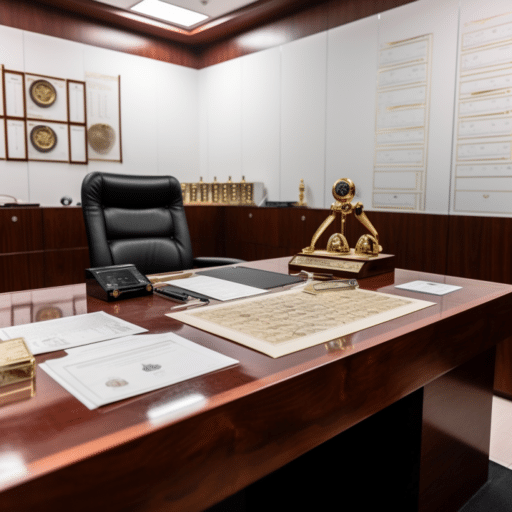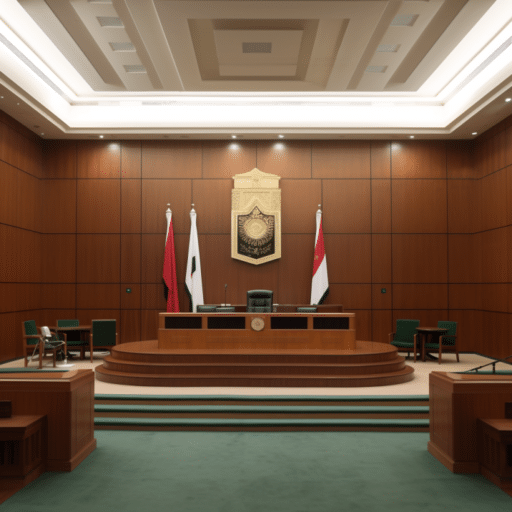Drafting wills in the UAE stand as an essential aspect of financial and familial planning.
The specifics of UAE laws, especially the influence of Sharia Law, further emphasize the necessity of understanding and setting up wills in the UAE for both residents and expatriates.
If you want to invest as an expat or high-net-worth individual, you can email me (advice@adamfayed.com) or use these contact options.
This article is here for informational purposes only, and doesn’t constitute formal legal or financial advice. What is more, the facts might have changed since this article was made.
Importance of Wills
Having a will in place transcends mere legal formality; it’s a protective measure for your assets, family, and businesses.
By ensuring a legal structure for the distribution of your assets, wills in the UAE provide clear directives on how one’s properties, businesses, and financial investments should be allocated upon their passing.
This clarity minimizes the chances of disputes, misunderstandings, and potential misuse of one’s hard-earned assets.
As a tangible reflection of your last wishes, wills in the UAE are indispensable tools to safeguard your legacy and provide for your loved ones.
Sharia Law and Its Implications on Wills
Wills in the UAE, if not correctly drafted and registered, can lead to the automatic application of Sharia Law principles. At its core, Sharia Law seeks a just and equitable distribution of a deceased person’s assets among family members.
Predetermined shares are allocated to immediate family, including parents, spouses, and children. However, the proportions may vary based on various factors, including the deceased’s marital status, the number of children, and whether the parents are still alive.
While Sharia Law offers its framework for asset distribution, individual desires, and family dynamics can differ widely. For instance, someone might want to provide a specific property to a child or donate a portion of their assets to charity.
In the absence of formally recognized wills in the UAE, such specific wishes may remain unfulfilled.

Expatriates Wills in the UAE
Expatriates, given their unique status in the UAE, often have particular concerns and requirements. Wills in the UAE can, and often do, include assets that expatriates hold in their home countries.
However, it’s crucial to ensure these wills are compliant with both UAE laws and the regulations of their native nation. Understanding the juxtaposition of their native laws with Sharia Law principles becomes vital for expatriates.
Wills in the UAE that cater specifically to expatriates’ needs consider these potential disparities and provide solutions to harmonize the differences.
The Different Types of Wills in the UAE
Understanding the variety of wills in the UAE aids individuals in making decisions that align with their personal and financial circumstances. Several types of wills cater to various needs and preferences.
DIFC Wills
One of the most popular will types among non-Muslim expatriates, DIFC wills offer comprehensive coverage, especially for those residing in Dubai and Ras Al Khaimah. Drafting a DIFC will necessitate certain prerequisites.
Firstly, the individual should be a minimum of 21 years old. Secondly, they should possess assets in either Dubai or Ras Al Khaimah. With these criteria met, wills in the UAE, specifically DIFC wills, become a viable option for asset protection and distribution.
The extent of coverage DIFC wills provide is notable. These wills in the UAE encompass both movable assets, like bank accounts and stocks, and immovable assets, such as property.
Additionally, DIFC wills permit the inclusion of guardianship provisions, ensuring that minor children receive appropriate care in the unfortunate event of their parents’ passing.
Non-DIFC Wills
While DIFC wills cater to specific areas, non-DIFC wills come into play for assets located outside of Dubai and Ras Al Khaimah.
Their unique distinction lies in their broader geographical coverage. Non-DIFC wills in the UAE are subject to different legal jurisdictions based on the asset’s location.
Therefore, these wills demand meticulous legal scrutiny. Engaging a well-versed legal expert can ensure that non-DIFC wills in the UAE remain enforceable and in accordance with regional laws.
Joint Wills
Couples often seek a collective solution for asset distribution. Joint wills in the UAE provide couples with an opportunity to consolidate their wishes into a single document, offering a cohesive strategy for their assets.
Joint wills in the UAE streamline the legal process, reducing the need for multiple documents. They foster mutual understanding between partners regarding asset distribution, minimizing potential disputes.
Guardianship Wills
A parent’s foremost concern is the well-being of their children. Guardianship wills in the UAE address these concerns, especially for parents of minors.
Guardianship wills in the UAE serve as a protective shield for minor children. In these wills, parents nominate trustworthy guardians to oversee their children’s upbringing and well-being.
This ensures that even in the parents’ absence, children remain in capable and caring hands. Wills in the UAE, especially guardianship wills, undergo strict legal scrutiny.
To uphold their intent, these wills must clearly define the nominated guardian’s role and responsibilities.
The Process of Drafting a Will
Drafting wills in the UAE demands meticulous attention to the region’s unique legal landscape.
Engaging a lawyer vs DIY
The digital age presents numerous platforms promoting DIY wills in the UAE. While these platforms can offer convenience and affordability, they might not cater to the complexities inherent to each individual’s situation.
DIY wills in the UAE might miss essential legal jargons or fail to cover all bases due to the lack of professional oversight.
Additionally, any oversight or mistake can lead to disputes or misinterpretation later, often negating the purpose of the will. Hence, getting professional assistance from a lawyer is recommended.
A lawyer not only drafts but also comprehends the legal intricacies of wills in the UAE. They provide guidance, ensuring that the will remains enforceable and aligns with the client’s wishes.
Their expertise guarantees that wills in the UAE stand up in court and serve the intended purpose.
Essential elements to include
Wills in the UAE must be clear and detailed, reducing the chances of potential disputes.

Assets
Detailing assets is a primary aspect of drafting wills in the UAE. This includes both movable (like cars, jewelry, and bank accounts) and immovable assets (such as properties).
The clearer the asset descriptions, the less room there is for disputes.
Beneficiaries
In wills in the UAE, you should list all beneficiaries explicitly. Whether it’s family, friends, or charitable organizations, specify the share each beneficiary receives.
This clear delineation ensures that your wishes get honored without ambiguity.
Guardians
For those with minor children, wills in the UAE should determine who will assume guardianship if both parents are deceased.
This decision protects children’s welfare and ensures they have care and guidance.
Executor
The executor plays a pivotal role in implementing wills in the UAE. This individual or entity is responsible for executing the terms of the will, distributing assets, and settling any debts. It’s imperative to select a trustworthy and capable executor.
Registering Your Will
When discussing the necessity of formalizing your last wishes, it’s paramount to highlight the significance of not only drafting but also registering wills in the UAE.
DIFC stands as a beacon for expatriates in Dubai and Ras Al Khaimah, ensuring that their assets and beneficiaries receive due respect and attention. When individuals opt for DIFC wills, they are effectively choosing a system that understands their concerns and needs, especially if they are non-Muslim.
Why choose DIFC for your will registration?
The DIFC Wills Service Centre operates under a set of rules and principles that are familiar to many Western expatriates.
Their system ensures that the entire process of registering wills in the UAE is smooth and straightforward, allowing your wishes to remain unaltered.
By registering your will with the DIFC Wills Service Centre, you guarantee that your assets remain safeguarded and get distributed according to your intentions.
This registration ensures that wills in the UAE find protection against potential disputes or misunderstandings.
Consequences of not registering
Foregoing the registration process of wills in the UAE leaves a significant gap in your estate planning, one that can cause numerous issues down the line.
Wills in the UAE that remain unregistered can undergo questioning and challenges in courts. This process can be time-consuming and mentally exhausting for the grieving family.
Without registering wills in the UAE, there’s a risk that Sharia Law, which doesn’t always mirror one’s personal wishes, will influence asset distribution.
This situation often leads to unexpected beneficiaries and can create tension within families.

The Cost Implications
While it’s true that drafting and registering wills in the UAE comes with its set of expenses, the real cost often lies in neglecting this essential step in financial planning.
Legal fees for drafting a will
Hiring a professional, especially in legal matters, always guarantees that you receive expert advice tailored to your needs.
When drafting wills in the UAE, it’s not just about jotting down wishes; it’s about ensuring they stand in court. Lawyers offer guidance, ensuring your will is comprehensive and devoid of loopholes.
While lawyers might charge a fee for their services, the cost is justified. Having professionally drafted wills in the UAE guarantees peace of mind, knowing your assets and family are protected.
Registration fees
Like many legal processes, registering wills in the UAE does carry its set of fees.
The DIFC Wills Service Centre, a prominent institution in this field, has a transparent fee structure. While prices can change, researching current rates gives you a clear picture of the expenses involved.
The small fee paid for registering wills in the UAE pales in comparison to the assurance that your last wishes will be executed seamlessly.
Costs of not having a will
The financial repercussions of not drafting or registering wills in the UAE can be substantial. Asset disputes, especially when there aren’t clear wills in the UAE, can lead to extended legal battles.
These disputes not only strain relationships but also result in significant legal costs. Beyond the tangible financial implications, the lack of clear wills in the UAE can cause emotional distress for families.
The uncertainty and potential disagreements about asset distribution can strain relationships during an already challenging time.
The Role of Executors and Guardians
When discussing wills in the UAE, executors and guardians stand out as two key players. They ensure the seamless execution of a deceased individual’s wishes and protect the interests of minor beneficiaries.
Choosing an executor
Selecting the right executor remains essential for those drafting wills in the UAE. The executor represents the deceased’s interests after their passing.
While it’s imperative to choose someone you trust implicitly, it’s equally crucial that the individual possesses organizational skills and understands the legalities involved.
While drafting wills in the UAE, consider the following traits when selecting your executor:
- Legal and financial acumen: Knowledge about wills in the UAE aids in smoother execution.
- Reliability: They should handle responsibilities meticulously.
- Availability: They must be available and willing to take on the role.
Responsibilities of an executor
In handling wills in the UAE, an executor shoulders several responsibilities. The executor lists all assets, ensuring they align with the details in the will.
Before distributing assets from wills in the UAE, executors must settle any outstanding debts, ensuring beneficiaries receive clean titles.
Post debt clearance; the executor oversees the distribution as mentioned in the will.
Nominating guardians for minor children
A significant aspect of drafting wills in the UAE for parents is determining the fate of their minor children. Parents should ensure they choose guardians who can provide stability and share their values.
Before finalizing guardians in wills in the UAE, parents should discuss their wishes with the nominated guardians, ensuring they’re willing to assume responsibility.
Challenges and Disputes
Disputes surrounding wills in the UAE aren’t uncommon, but understanding the reasons and solutions can help in preventing them.
While wills in the UAE aim to clarify asset distribution, they sometimes become the center of family disputes.
If wills in the UAE lack clarity, they can lead to varying interpretations, causing disputes. Family members might also feel the distribution doesn’t treat them fairly, leading to contention.
Legal options for resolution
Wills in the UAE have the power of law backing them, offering various resolution methods. Before escalating disputes, parties can seek mediation to find a middle ground. If mediation fails, disputing parties might turn to the courts.

The UAE courts interpret wills in the UAE based on the mentioned wishes and the country’s legal frameworks.
Reviewing and Updating Your Will
Ensuring your will remains relevant and aligned with your current circumstances is crucial. Wills in the UAE, as in other jurisdictions, are not static documents.
They need regular revisits to ensure they reflect your evolving life and wishes.
When and Why to Update your Will
Keeping your will updated is a sign of responsibility, ensuring that it aligns with your most recent wishes and circumstances.
Life’s Major Events
Wills in the UAE often need revision after significant life events. Whether it’s the joy of welcoming a new child into the family, the sorrow of losing a loved one, or the excitement of buying a new property, these milestones can drastically change how you want your assets distributed.
Changes in Financial Situation
An upward surge in your financial situation, like receiving a substantial inheritance or selling a business, can reshape how you wish to allocate your wealth.
On the other hand, financial downturns might also warrant modifications in wills in the UAE to reflect the current reality.
Alterations in Relationships
Marriages, divorces, and other relationship dynamics can influence decisions about asset distribution. It’s essential that wills in the UAE reflect your current relationship status and sentiments.
Changes in the Legal Landscape
Laws related to wills in the UAE can evolve, and staying compliant ensures your will remains enforceable. Regular reviews with legal counsel ensure you adhere to the most recent legal standards.
Process of Making Amendments
Adjusting your will doesn’t have to be a daunting task. The ease and simplicity of the process encourage individuals to ensure their wills in the UAE are up-to-date.
Using Addenda or Codicils
For minor changes, such as adding a beneficiary or altering a specific bequest, you don’t need to draft an entirely new will.
Instead, you can append an addendum or codicil, a legally recognized instrument that allows for modifications to existing wills in the UAE.
Drafting a New Will
For more significant changes, or if your will has already undergone several amendments, it might be cleaner and clearer to draft a new document.
When you create a new will in the UAE, ensure you revoke the previous one to avoid any confusion or legal conflicts.

Legal Assistance
It’s always advisable to seek legal advice when making changes. Professionals well-versed in the intricacies of wills in the UAE can offer guidance, ensuring every amendment aligns with your intentions and the country’s laws.
Pained by financial indecision? Want to invest with Adam?

Adam is an internationally recognised author on financial matters with over 827million answer views on Quora, a widely sold book on Amazon, and a contributor on Forbes.



